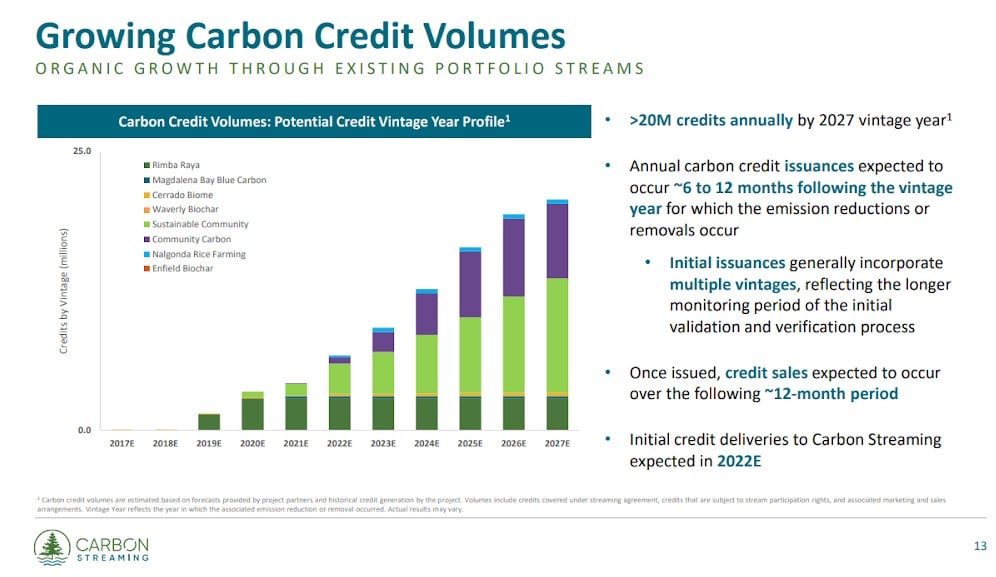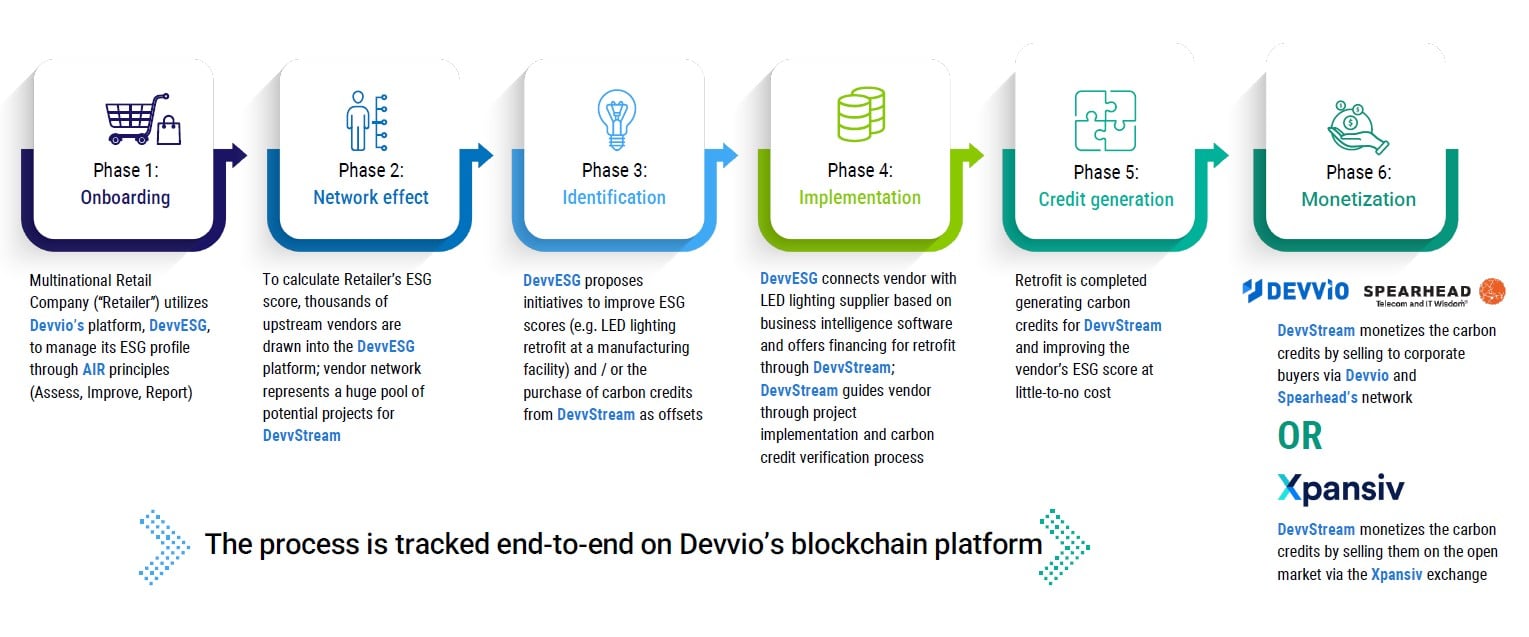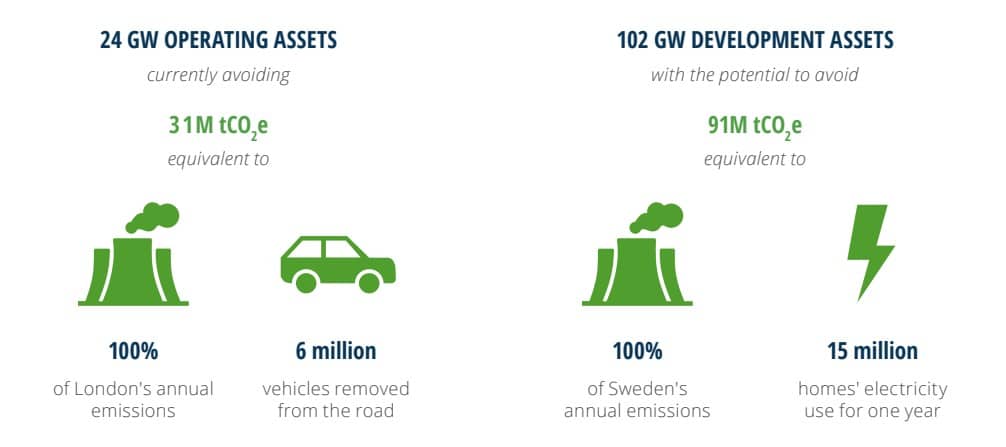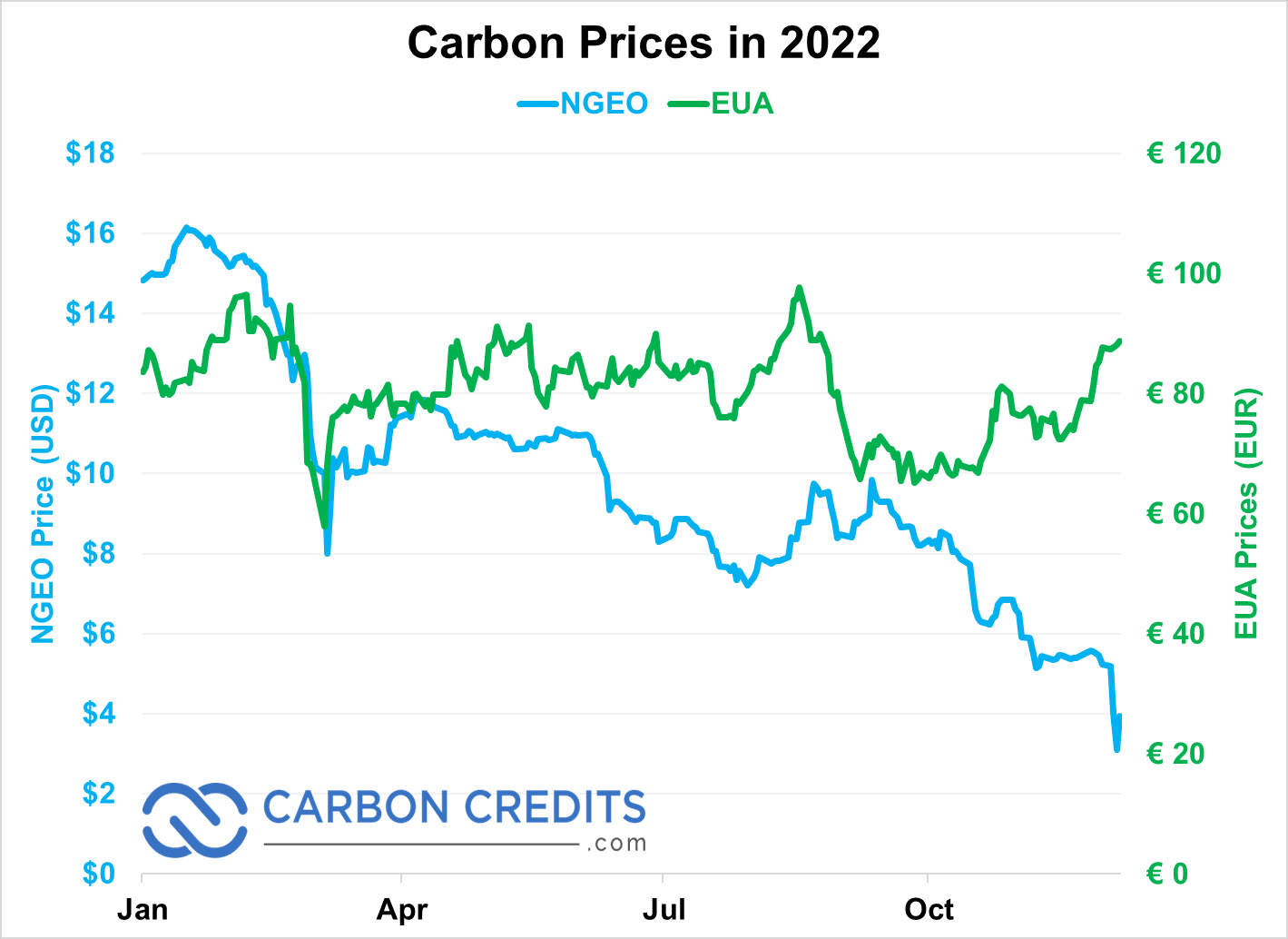 Why Carbon Stocks?
Why Carbon Stocks?Carbon stocks are an attractive option for investors looking to support the transition to a low-carbon economy and mitigate the effects of climate change.Companies from Amazon to Netflix and Xerox – and everyone in between – are releasing plans to disclose and reduce their carbon footprint. Most companies are targeting zero net carbon emissions (“net zero”) by the year 2050. But some have chosen much more aggressive targets.Tech giants Apple and Microsoft, for instance, are committing to net zero by 2030. For companies like these, carbon credits and offsets as well as sequestration and energy reduction play a key role in their plans.Let’s take a look at some carbon stocks in 2023 to put on your radar.
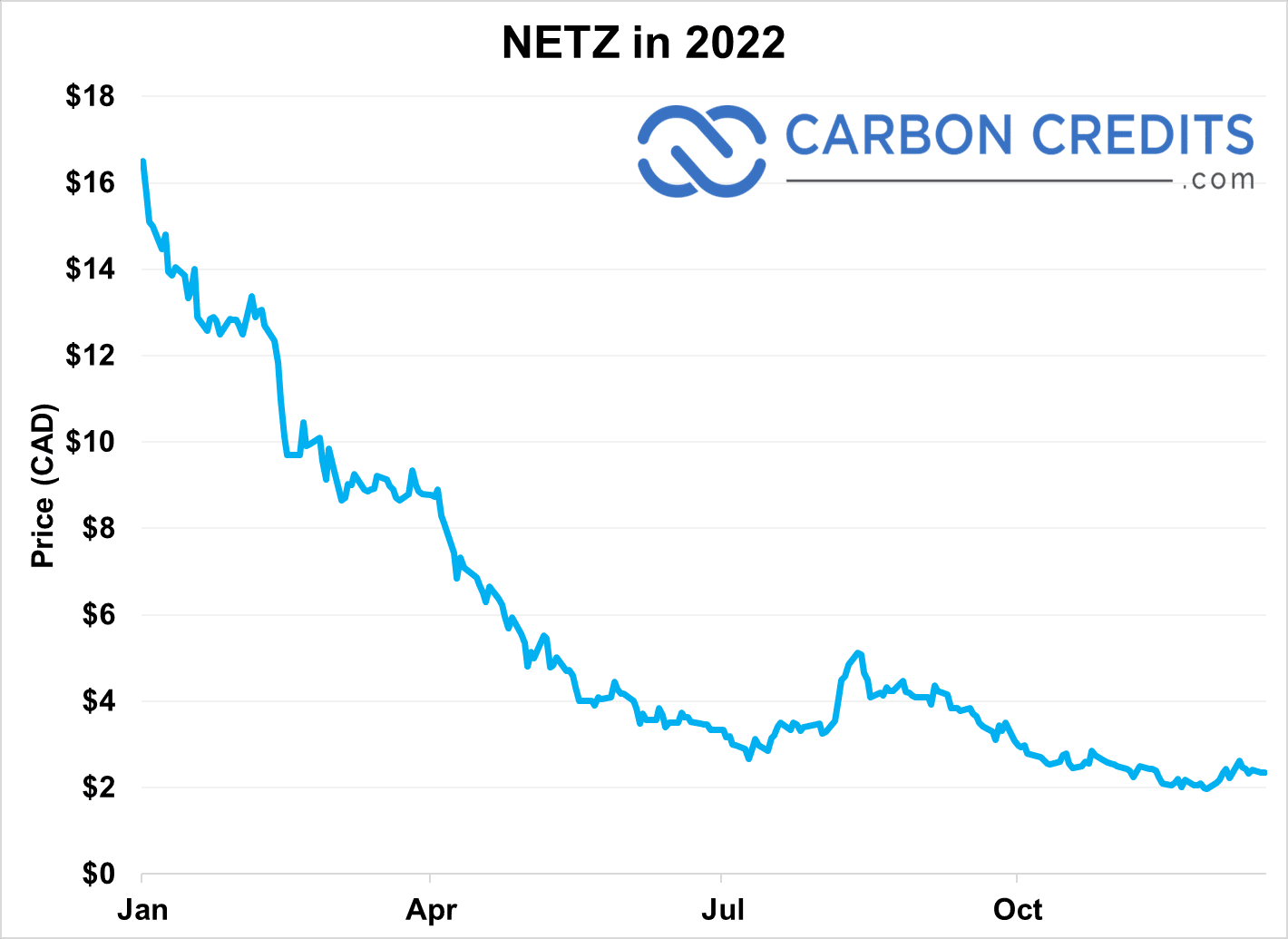 Carbon Streaming was one of the first publicly traded carbon stocks focused on offset credits. Being one of the first has allowed the company to become an early mover in the carbon credit space. It also enabled the firm to secure several sources of extremely high-quality carbon credits.Carbon Streaming trades on the NEO exchange in Canada, as well as the OTC market in the U.S. The company intends to list on the NASDAQ in the near future.The company has been picked up by analysts at TD, Bank of Nova Scotia, BMO, and H.C. Wainwright, among other institutions, with an average price target of around US$4.50.What are streaming and royalty companies?
Carbon Streaming was one of the first publicly traded carbon stocks focused on offset credits. Being one of the first has allowed the company to become an early mover in the carbon credit space. It also enabled the firm to secure several sources of extremely high-quality carbon credits.Carbon Streaming trades on the NEO exchange in Canada, as well as the OTC market in the U.S. The company intends to list on the NASDAQ in the near future.The company has been picked up by analysts at TD, Bank of Nova Scotia, BMO, and H.C. Wainwright, among other institutions, with an average price target of around US$4.50.What are streaming and royalty companies?
- Streaming and royalty companies are businesses that provide financing for the development of projects.
- In exchange for providing financing, these companies receive a stream of future cash flows from the project, which is called a “stream” or “royalty.”
- Streaming and royalty companies can be a good option for investors who want to support the transition to a low-carbon economy without having to bear the full financial risk of developing a project or asset.
These companies often have a portfolio of projects in different stages of development, providing diversification and reducing the risk for investors.
In total NETZ has a portfolio of 21 projects in 12 different countries around the world.
The Rimba Raya Biodiversity Project in Indonesia is one of NETZ’s flagship projects. It’s one of the world’s largest REDD+ projects and addresses all 17 of the UN Sustainable Development Goals.
Carbon Streaming is a leveraged play on the demand and the value of carbon credits increasing in the voluntary carbon market.
Carbon Streaming Corp.’s Highlights
- Carbon credits expected to be issued from 10 or more carbon projects by the end of 2023E,
- Currently trading at a significant discount to net asset value,
- Management team has executed >$2 billion of streaming agreements and includes leading experts in the carbon markets,
- The company expects moderate and then rapid growth of credits in the coming years, peaking near 20 million credits per year by 2027.
NETZ is an option for investors with a high-risk tolerance. The company was a the first of its kind in the carbon markets, and its unique business model could help it outperform the competition.
It’s worth checking the company presentation out for those interested in carbon credit stocks and investments.
- In addition to these rights, DevvStream manages the carbon credits generated by using an advanced blockchain-based ESG platform.
The primary business of Devvio, which is DevvStream’s parent company, is its proprietary blockchain-based ESG platform.
As a B2B service, Devvio provides its corporate clients with a framework for global-scale enterprise management.
DevvESG offers regulatory-compliant transaction management and tracks assets for maintenance. It also has record keeping, automation, and ESG reporting capabilities. All of this is done transparently.
It was built with smart contracts through its proprietary blockchain. And that’s for a fraction of the transaction cost of other blockchain (i.e. 1/1,000,000th the energy cost of Ethereum).
On top of this, Devvio’s platform is highly scalable. It can allow for over 8 million transactions per second. For reference, Visa only sees around 1,700 transactions per second worldwide.
And as Devvio is the majority owner of DevvStream, the latter is fully ready to make good use of its infrastructure.
Total ESG assets under management have more than tripled in the past decade, and analysts estimate that number will hit $41 trillion by the end of this year.
- Globally, one in every three dollars of managed money belong to ESG-related assets.
On top of this, carbon markets are set to grow between 15x and 100x by 2030.
Put together, this gives DevvStream access to an extremely high-growth market which it can target thanks to the Devvio technology. Here’s a snapshot from their investor deck:
DevvStream’s Highlights
What sets DevvStream apart from its competitors are its partnerships and the ecosystem that they play in both the voluntary and compliance markets.
For instance, through its partnership with its parent company, DevvStream gets direct access to all of the companies in Devvio’s ESG corporate client base who happen to be looking to buy carbon credits.
- They also get the exclusive right to manage the data used to generate the carbon credits from their streaming agreements on Devvio’s blockchain platform for transparency and recordkeeping purposes.
This gives them a major advantage over traditional carbon credits.
In addition to having access to all of Devvio’s corporate clients, DevvStream can also choose to sell its carbon credits on its partner Xpansiv’s CBL market.
Xpansiv is the largest voluntary carbon credit marketplace in the world, currently hosting over 90% of all transactions worldwide. Companies with major net-zero commitments like Chevron, Shell, Walmart, and Goldman Sachs – all use Xpansiv’s trading platform.
Xpansiv and Devvio make the perfect partners for DevvStream. The latter provides both a blockchain platform for credits as well as access to an ESG customer base. And the former offers a secondary market for any of DevvStream’s excess credits.
DevvStream is another good option for investors with a larger appetite for risk. The company can leverage its unique partnerships to differentiate itself from its competitors.
You can learn more about DevvStream at their corporate page here.
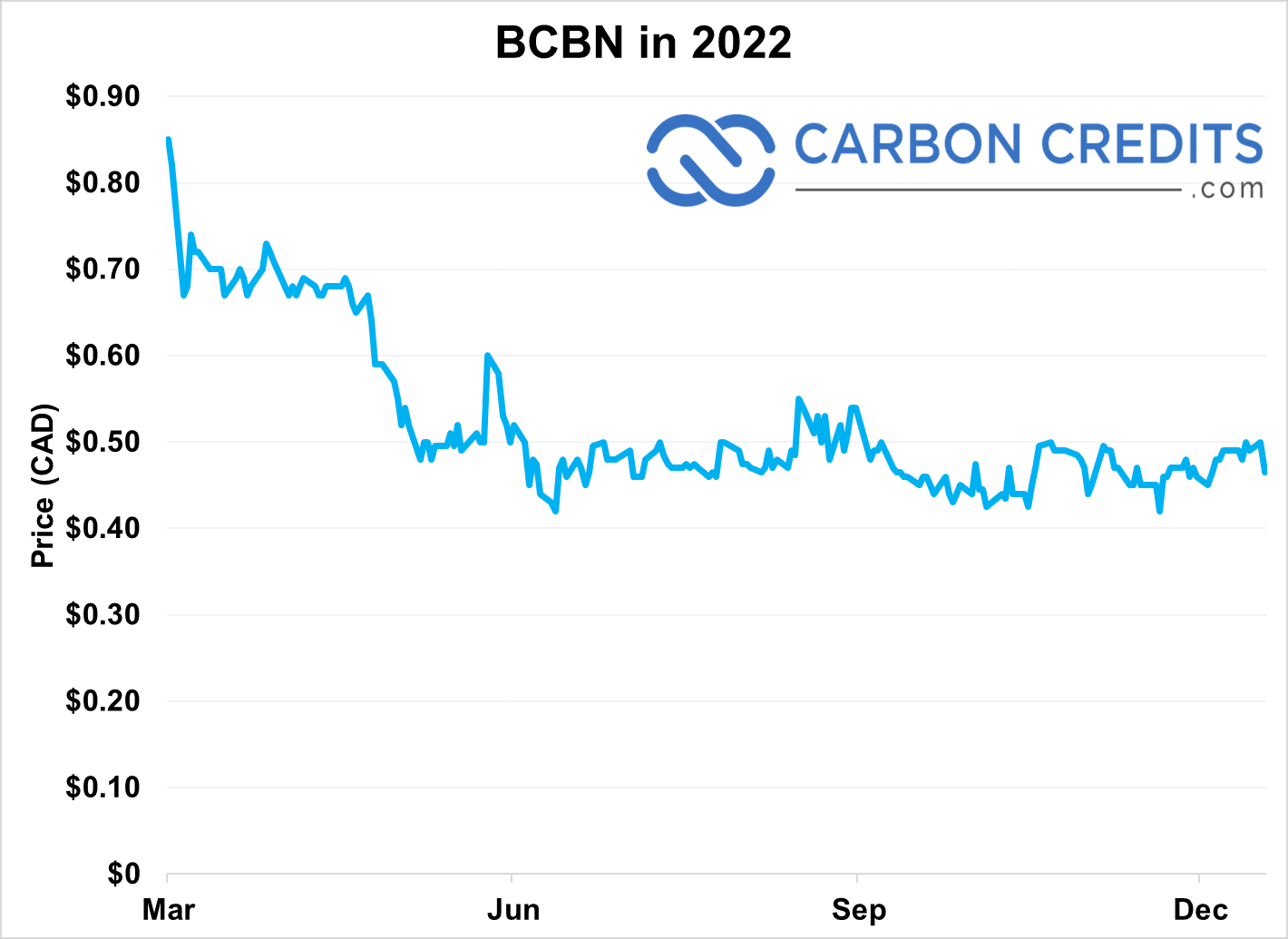 Like Carbon Streaming Corp., Base Carbon is also involved in financing carbon projects that generate voluntary carbon credits.Base has two executed project agreements estimated to generate a total of 34 million carbon credits. This amounts to about 3 million tonnes per year at full production.
Like Carbon Streaming Corp., Base Carbon is also involved in financing carbon projects that generate voluntary carbon credits.Base has two executed project agreements estimated to generate a total of 34 million carbon credits. This amounts to about 3 million tonnes per year at full production.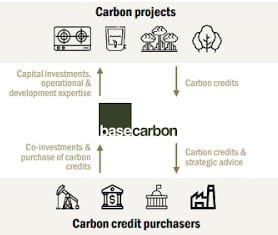 The company has committed USD$29.6 million for projects in Rwanda and Vietnam.Project #1: Vietnam Household Devices
The company has committed USD$29.6 million for projects in Rwanda and Vietnam.Project #1: Vietnam Household Devices
- 51.4% of Vietnam’s primary household energy is generated from solid fuel combusted within open fires or inefficient cookstoves for cooking or water sanitization.
- Base Carbon will fund the manufacturing and distribution of 850,000 fuel-efficient cookstoves and 364,000 safe-drinking water purifiers to families in rural areas of Vietnam.
Project #2: Rwanda Cookstoves
- Households in Rwanda rely nearly entirely on biomass for cooking and related purposes resulting in inefficiencies in fuel use and negative health impacts.
- Base aims to facilitate 250,000 fuel-efficient cookstoves as part of the Tubeho Neza project, distributed to rural families, reducing consumption of wood by at least 71%
Base Carbon’s Highlights
The projected growth of the voluntary carbon market will serve as an excellent catalyst for Base, which already has a steady source of carbon credit production locked in for the next decade.
Base has a healthy balance sheet with a strong cash position, and management is continuing to work on sourcing other high-quality carbon credit projects for the company. For instance, Base recently partnered with the Danish Red Cross to develop blue carbon projects in Southeast Asia.
In addition, the company boasts management, advisors and key insider ownership at 36.4% of shares outstanding. And institutional shareholders own another 27.7%. Base is a carbon stock where key players have a high degree of “skin in the game”.
Base is yet another option for investors with high risk tolerance.
Its small market cap and thin volume could provide a fast-moving tailwind with any rise in carbon credit prices.
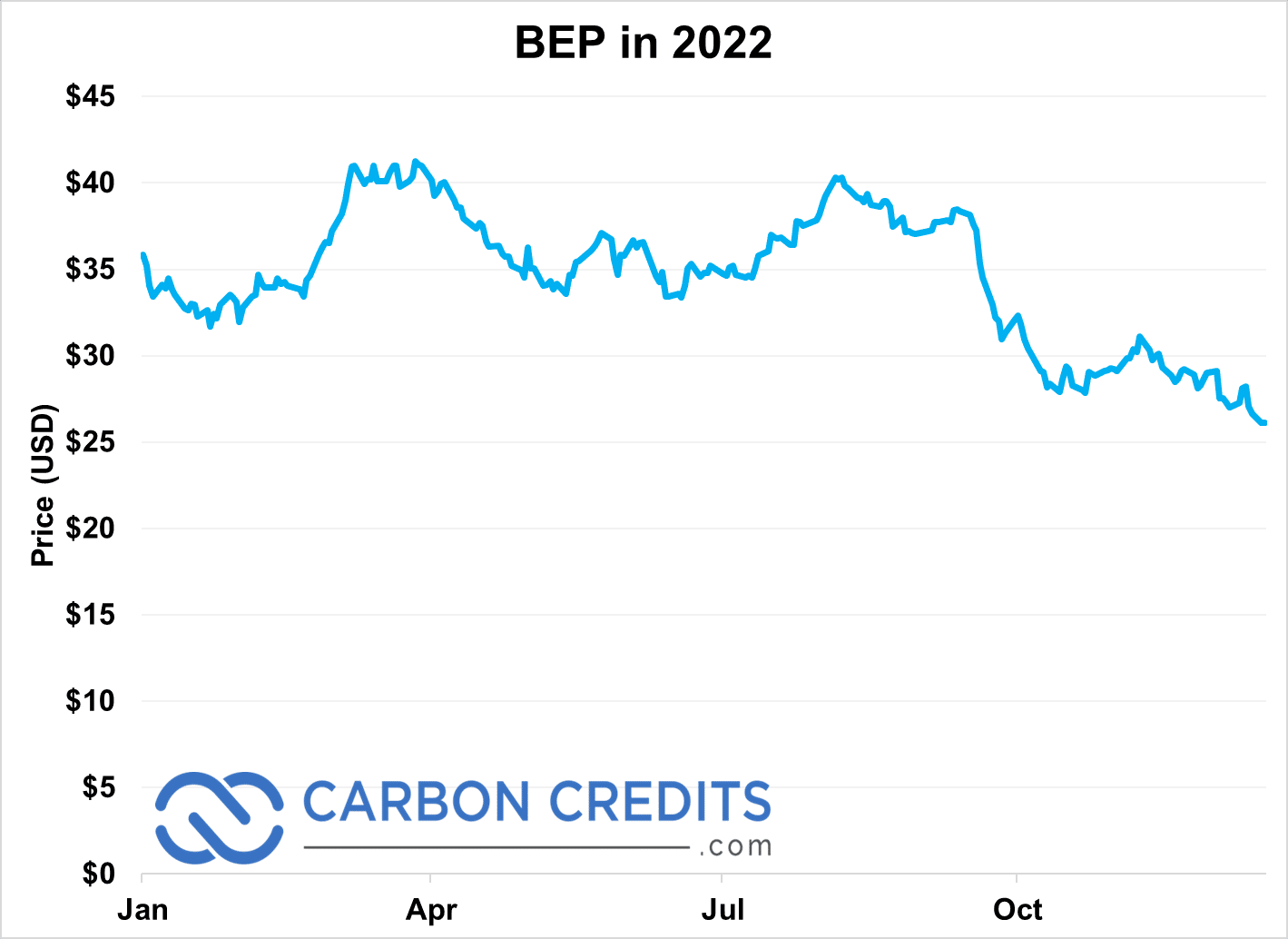 Rounding out our list is Brookfield Renewable Partners, one of the world’s largest publicly traded renewable energy companies.One of the key things that sets Brookfield apart from many similar companies in the space is the fact that BEP is a pure-play renewable company.What that means is that the entirety of BEP’s portfolio consists solely of renewable sources of power generation. This is unlike many other power companies whose portfolios often also include traditional fossil fuel power plants.This focus on clean energy has made BEP a world leader in renewable energy and decarbonization technologies. Plus, they have projects all over the world in both Americas, Europe, and Asia.Currently, BEP owns 24 gigawatts of power generating assets including 229 hydroelectric plants, 105 wind farms, 88 solar power plants and a number of other sustainable & distributed energy solutions.
Rounding out our list is Brookfield Renewable Partners, one of the world’s largest publicly traded renewable energy companies.One of the key things that sets Brookfield apart from many similar companies in the space is the fact that BEP is a pure-play renewable company.What that means is that the entirety of BEP’s portfolio consists solely of renewable sources of power generation. This is unlike many other power companies whose portfolios often also include traditional fossil fuel power plants.This focus on clean energy has made BEP a world leader in renewable energy and decarbonization technologies. Plus, they have projects all over the world in both Americas, Europe, and Asia.Currently, BEP owns 24 gigawatts of power generating assets including 229 hydroelectric plants, 105 wind farms, 88 solar power plants and a number of other sustainable & distributed energy solutions.
BEP’s management team isn’t content to sit on their laurels, however. They have an extensive development pipeline in place, with 11 GW of power capacity. And that’s a 46% increase over what they have now – secured over the next three years.
Brookfield Renewable Partners’ Highlights
Simply put, BEP is a well-established major company with a proven and stable business model, a strong balance sheet and tons of cash flow.
Over the past 5 years, BEP has averaged just over 5% dividend yield. Since their inception over two decades ago, their distributions have grown by an average of 6% each year. At the same time, the stock itself has seen average returns of 16% a year – an outstanding track record.
Plans and capital are already in place for BEP to grow their operating capacity by 46% over the next 3 years. If the company can fully execute their development pipeline, they’ll be able to multiply their power generation portfolio by 5x. It also means offsetting as much carbon each year as the entire country of Sweden produces.
On top of this, many companies right now are looking to reduce their reliance on carbon-emitting sources of electricity to hit their net zero targets. BEP, with their 100% carbon-free renewable energy portfolio, perfectly fits the bill for such companies.
For investors with a lower appetite for risk that still want exposure to the carbon markets, BEP is a great company to keep your eyes on.
Carbon Stocks Are Grabbing Investors’ Attention in 2024
As more and more public companies declare their net-zero ambitions and disclose their carbon emissions, responsible investing is becoming a hot topic in financial markets. Big money is pouring into renewable energy and offsetting emissions using carbon credits.
Meta, Apple, and Netflix are among the tech giants leading the charge towards net-zero targets by 2030. Meanwhile, major mining companies like Barrick and Newmont, as well as energy giants like Saudi Aramco, Exxon and Shell, are also making similar commitments.
These developments will likely increase investor interest in all things carbon-related in 2024 and beyond. As net zero targets for 2030 draw closer, we can expect this trend to accelerate even further.
Carbon stocks could prove as a valuable addition to an investor’s portfolio as the world heads towards net zero targets.
Disclosure: Owners, members, directors and employees of carboncredits.com have/may have stock or option position in any of the companies mentioned: NETZ, DESG
Additional disclosure: This communication serves the sole purpose of adding value to the research process and is for information only. Please do your own due diligence. Every investment in securities mentioned in publications of carboncredits.com involve risks which could lead to a total loss of the invested capital.

